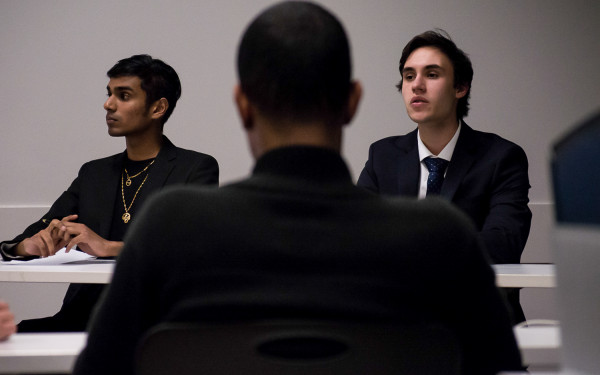Editorial: Embracing eVoting
The Pitfalls and Potential of Online Voting Should Be Revisited
Back in mid-November, McGill University students voted to keep supporting the campus student-run publications, The McGill Daily and Le Délit.
Students who wanted to vote went to a website, logged in with their student account, and voted. It took all of 30 seconds, and a ballot could be filled from anywhere with internet access.
McGill students have been voting online since 2003. Here at Concordia, the only faculty association using online voting is the Commerce and Administration Student Association.
They partially implemented online voting through an opt-in system in February. Now, as of Nov. 7, CASA’s Board of Governors decided to fully embrace online voting for CASA’s 7,500 members.
The Link supports this attempt to make voting easier for students. We also encourage the Concordia Student Union and all faculty associations to reconsider implementing online voting—or to have public consultations with students to evaluate whether they feel the risks of a new system are worth the potentially increased engagement.
CASA students will be voting through an application called My Vote, available through their MyConcordia portal. At the moment, the only other use of the application is for staff and faculty to answer surveys. We hope that if CASA’s attempt works, other campus associations will evaluate whether to move to online voting.
Turnout is abysmal across all faculties. In the 2017 CSU General Election, 1,076 students voted out of 35,000. The Arts and Sciences Federation of Associations, a group of 20,000 students, didn’t meet minimum voter turnout for two straight elections in 2015 and 2016. CASA saw only 726 of their 7,500 students vote in their February election—14 voted online. Online voting can help increase turnout for elections and referendum questions, directly and indirectly.
Directly, online voting will simply make voting easier for students. It’ll also allow Concordia students abroad to participate in student politics back home.
Indirectly, by not having to employ invigilators, the Chief Electoral Officer could employ more students to market the elections and increase the awareness of the campaign—which the CEO recommended in the 2017 CSU General Election Report.
However, the financial trade off is murky, since implementing and securing a new system would also be expensive, and there are risks in switching to online voting, involving fraud or hacking. Those are risks that CASA is willing to accept, but they deserve broad discussion in the student body before making the same decision across the school.
As far as security goes, if MyConcordia is safe enough to store all of the personal information of tens of thousands of students, it’s probably safe enough to vote with. As an existing system, the costs of implementing it would also likely be smaller.
But the CSU has made its position on online voting clear. Following the recommendation of a 2014 report the CSU commissioned on the subject, they don’t believe the risks are worth it. The report pointed to the many dangers that such a change would bring, like making voter fraud extremely hard to trace, having no way of preventing proxy voting, or opening up the election to potential interference from anybody, anywhere. Those are real risks compared to unknown benefits in turnout.
Leyla Sutherland, the CSU Student Life Coordinator, says they would rather focus on increasing awareness and engagement instead.
However, CASA’s former vice-president and one of the founders of the online voting system, Shaumia Suntharalingam, told The Link that there are more risks associated with paper ballot voting since there is no electronic identity verification.
Now that CASA is using My Vote, it will be a chance for the rest of the university to see what kind of a difference online voting makes at Concordia, if turnout really increases and the system really is safe. It addresses one of the concluding arguments of the CSU report:
“Convenience and participation is a noble goal, but it needs to prove it is worth the associated risks. The only way to do so would be to demonstrate that online voting is the only way to increase them, and therefore that the associated risks are inevitable.”
CASA switching to online voting is such a demonstration. It’s a test to see if what works at McGill could work at Concordia.
We at The Link are excited to see what happens. We want more conversations to happen about voting at Concordia. We would also support more opportunities for students and faculty associations to exchange ideas and solutions to low engagement. After all, there is clearly a broader problem that a simple switch in voting won’t fix.
Lowering the barriers to basic involvement in student politics is a fine place to start. It’s just that there are a whole lot of ways to do that before jumping online.


_600_832_s.png)

_copy_600_375_90_s_c1.jpg)

_600_375_90_s_c1.jpg)
